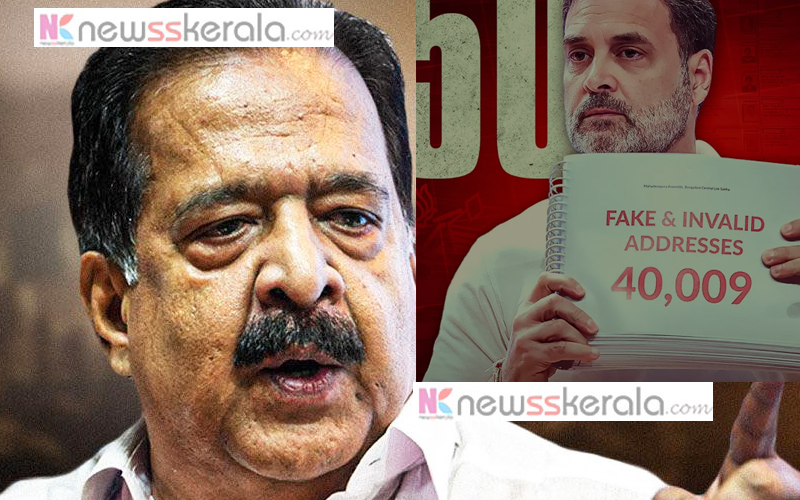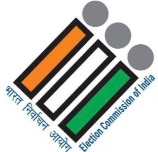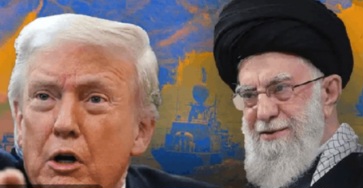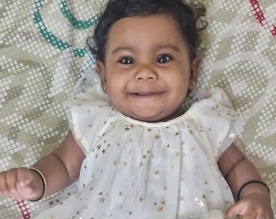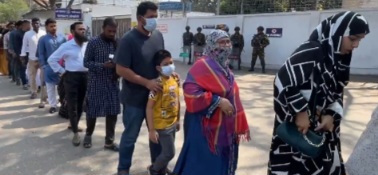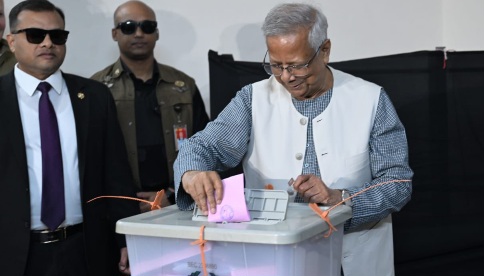ABHISH K. BOSE
Senior Congress leader Ramesh Chennithala has of late accused BJP of sabotaging Maharashtra elections through voter list manipulation and alleges CPM’s collusion with Kerala State Election Commission to compromise the local body polls.
In an exclusive interview with journalist Abhish K. Bose, Chennithala alleges that the Maharashtra elections were sabotaged, citing a suspicious surge in votes recorded after 5 pm. He claims 6-7% of votes were fake and questions the Election Commission’s refusal to release machine-readable voter lists and polling footage. Chennithala also accuses the CPM of colluding with the Kerala State Election Commission to manipulate voter lists, citing abnormal increases in voters and ghost voters. He expresses concerns over delays and irregularities in polling due to increased voters per booth and advocates for transparency in the electoral process.
Excerpts from the interview
Q: Can you provide concrete evidence or credible sources supporting the claim that the BJP secured a sabotage victory in Maharashtra through widespread manipulation of the voter list? What specific facts or investigations back this serious allegation?
Ramesh Chennithala : Just a day after the Maharashtra results, one thing was clear — this election was sabotaged. And the alarm didn’t come only from the Opposition: rifts appeared inside the BJP-led Mahayuti, with alliance partners publicly questioning the surge in votes recorded after 5 PM.
The biggest question is: how did 76 lakh people vote between 5 and 6 PM? That means 76 votes per booth in one hour, when the normal pace is only 60–70 per hour through the day. This is simply not possible. We believe 6–7% of the votes were fake.
The Opposition was set to win 160 out of 288 seats, but the mandate was stolen. Between the May Lok Sabha polls and the November Assembly polls, more voters were added in five months than in the previous five years. In the Chief Minister’s own constituency, the rolls jumped 8% in that short span. Some booths showed an outrageous 20–50% surge.
We have been demanding a machine-readable voter list and polling footage, but the ECI refuses to release them. What are they hiding? As Rahul Gandhi rightly said in Parliament, the rigging happened step by step: first, pack the EC panel; second, pad the rolls with fake names; third, inflate turnout; fourth, channel bogus votes where the BJP needed them; and finally, cover up the evidence.
Even the Commission itself admits that 2–3% of votes were recorded after polling hours. But the law is crystal clear: not a single vote can be accepted once polling ends. This was daylight fraud, passed off as democracy.
Q: What concrete, verifiable evidence exists to substantiate the explosive allegation that the CPM is colluding with the Kerala State Election Commission to manipulate the voter list, thereby compromising the integrity of the upcoming local body elections?
Ramesh Chennithala: The LDF government in Kerala has been misusing the system. They routinely appoint their own well-wishers as electoral officers, and that has directly affected the integrity of the electoral rolls. We saw this very clearly in Thrissur last time. Between 2019 and 2024, the number of voters there suddenly went up by 1.46 lakh. That kind of increase is highly abnormal.
Now, how is this happening? Votes are being added in the names of people with no permanent residence, in the names of migrant workers, and even in the names of people who are completely unknown in those localities. Reports show that they are targeting locked houses, flats, and apartments — taking voter ID numbers and house numbers from the rolls, and adding names without the knowledge of the actual house owners.
And it doesn’t stop there. We have also seen the presence of ghost voters, and in large numbers. Shockingly, many of these ghost entries were even used to cast votes. This is nothing less than a systematic attempt to distort the mandate.
Q: Do you think the increase in the number of voters per booth from 1100 to 1300 will cause undue delays in the polling process? What measures do you propose to ensure the integrity of the electoral process in Kerala, given the concerns you have over the voter list?
Ramesh Chennithala: When you pack 1,100 to 1,300 voters into a single booth, it’s not just mismanagement — it’s voter harassment. The entire polling slows down, people are forced to wait endlessly, and our elders suffer the most. Many may simply give up in exasperation or stay at home . This is nothing but a deliberate attempt to keep genuine voters away from the ballot
Q: Does Vellapally Nateshan’s incendiary accusation that VD Satheeshan is an ‘Ezhava community hater’ represent a calculated, politically motivated manoeuvre to divisively mobilize communal sentiment, or merely an ill-considered, injudicious remark lacking strategic foresight, especially given that Congress leaders VM Sudheeran and Mullapally Ramachandran have vociferously criticized Vellapally for this statement?
Ramesh Chennithala: The Congress party respects all religions and their leaders. But we do not allow any external influence to dictate or interfere with the agenda we set for ourselves. V.D. Satheesan is a dynamic leader of the party and deserves the support of everyone, cutting across caste and creed.
Abhish K. Bose: Does Palod Ravi’s ouster as Thiruvananthapuram DCC President over his prescient yet contentious telephone remark – forecasting an LDF victory if the UDF falters – unmask a deeper, structurally entrenched dysfunction within the UDF’s organizational machinery, thereby raising urgent questions about the coalition’s grassroots functionality, or did Ravi merely hyperbolically extrapolate from isolated anecdotes, thereby magnifying an otherwise manageable situational blip?
Ramesh Chennithala: The so-called controversial telephone conversation of Palode Ravi has been blown out of proportion. It was a casual exchange, without the precautions one must take in today’s world of social media misinterpretation. His message was simple: only hard work and a house-to-house campaign will ensure a thumping victory for the UDF. Unfortunately, the anti-UDF camp twisted it to look like support for the LDF. The truth is clear — Sri Ravi remains firmly within the Congress, and he continues to work tirelessly for the success of the UDF.
Q: Could the BJP’s Chhattisgarh setback among Christians, triggered by the nun incarceration controversy, directly catalyze a rebound in Congress support within this pivotal UDF vote base, given that in the last Lok Sabha elections at Thrissur constituency BJP benefited from Christian support?
Ramesh Chennithala: We are very serious about this issue. The BJP is trying to intrude into the Christian community in Kerala purely for votes. But let us be clear — they have never stood with minorities anywhere in India. We have seen what happened in Manipur, Meghalaya, across the Northeast, in Uttar Pradesh, Gujarat, Chhattisgarh and many other states. The Christian community in Thrissur made a mistake in the last Lok Sabha election, but they have realised it. This time, they are determined to correct that mistake, and it will be reflected in both the upcoming local body and Assembly elections.
Q : Can VD Satheesan’s “Plan 63” revitalize the Congress party in Kerala by targeting 63 key assembly seats, and what potential enhancements could further bolster this strategy?
Ramesh Chennithala: The Congress has a clear vision — to win more than 100 seats in the next Assembly election. That is the collective aim of the party as well as the UDF leadership. Work is already underway, from the ward level right up to the state leadership. There is no question of individual credit here. It is teamwork. As Opposition Leader and Chairman of the UDF, V.D. Satheesan is working tirelessly to realise this goal.
Q : UDF will be lead by the opposition leader in elections and the incumbent opposition leader has the natural choice to be the CM candidate. In that scenario what will be your stand?
Ramesh Chennithala: We are not discussing the next Chief Minister now. Our focus is on securing a decisive mandate for the UDF in line with the people’s interests. After we win, we have a democratic process to select our leader. Any elected Congress MLA has the full right and eligibility to be considered for the Chief Minister’s post. The Congress Legislature Party will first select its leader, then the UDF leadership will be consulted, and finally, the Congress High Command will take the decision. That decision will be final, and all of us will stand united behind it.



